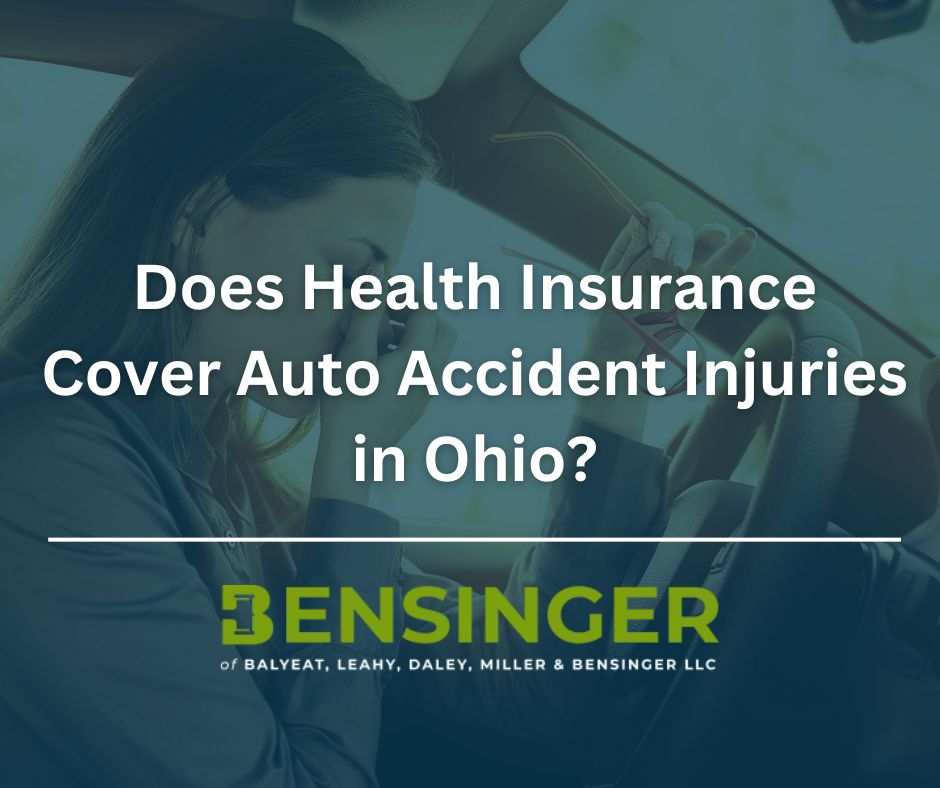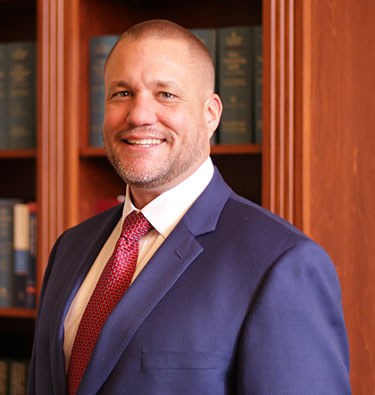
Navigating the aftermath of an auto accident in Ohio can bring a multitude of questions, particularly concerning how to manage medical bills and expenses incurred due to injuries. One of the most pressing questions is: Does health insurance cover auto accident injuries? Yes, in some situations, medical insurance does cover car accidents.
This blog post aims to unravel the complexities surrounding the coverage of medical expenses by health or medical insurance following a car accident in Ohio. We will explore how and when your health insurance may cover these costs and provide guidance on your options.
Get in touch with us now at (419) 455-1410 to schedule your consultation.
Health Insurance Coverage for Auto Accident Injuries
First, it’s crucial to understand that health insurance policies generally cover medical expenses, regardless of how the injury occurred. That means that if you’re injured in a car accident in Ohio, your health insurance will likely cover your medical bills to some extent. However, some nuances and conditions depend on your specific insurance plan and the circumstances of the accident.
Coordination of Benefits: Health Insurance and Auto Insurance
The “coordination of benefits” principle becomes relevant in car accident claims. This principle determines the order in which your insurance policies payout. Your auto insurance, particularly if you have Personal Injury Protection (PIP) or Medical Payments (MedPay) coverage, typically acts as the primary payer for accident-related medical expenses. After these coverages are exhausted, your health insurance may step in to cover additional costs.
It’s essential to review your health insurance policy’s terms regarding accidents. Some policies may have clauses that classify health insurance as secondary to other available insurance, including auto policies. This clause means that your health insurance may only cover expenses not covered by your auto insurance.
When Health Insurance Won’t Cover a Car Accident
While health insurance can cover medical expenses from auto accidents, there are instances where they may contest coverage. Consider an example where your health insurance provider determines that another insurance policy (like the other driver’s auto insurance) should pay first. In this scenario, they may deny your claim initially, requiring you to seek payment from the primary insurance.
Furthermore, if you receive a settlement from the at-fault party’s insurance, your health insurer may seek reimbursement from that settlement through a process known as subrogation. Subrogation is where your health insurance claims a right to payment for the expenses they cover that are attributable to the accident.
Medicaid and Medicare Coverage for Auto Accident Injuries in Ohio
Both Medicaid and Medicare can provide essential support for medical expenses resulting from car accidents, but their coordination with auto and other health insurance can be complex.
Medicaid Coverage for Auto Accident Injuries
Medicaid offers health coverage to eligible low-income individuals and families. In Ohio, Medicaid covers medical expenses for its beneficiaries, including those arising from auto accidents. If you’re a Medicaid recipient, the program will typically cover your medical expenses from the outset, acting as a payer of last resort. That means Medicaid will pay for your accident-related medical costs after other applicable insurances, like auto insurance or MedPay, have been exhausted.
However, similar to health insurance policies, Medicaid has the right to seek reimbursement for the medical expenses it covers if you receive a settlement from an at-fault party’s insurance. This process ensures that Medicaid can reclaim some of its incurred costs on your behalf.
Medicare Coverage for Auto Accident Injuries
Medicare is the federal health insurance program for people 65 and older and some younger individuals with disabilities. It also covers medical expenses related to auto accidents. Like Medicaid, Medicare serves as a secondary payer in cases where other insurance, such as auto insurance or MedPay, is available. Medicare may also be entitled to reimbursement from any compensation you receive related to the accident.
Legal Options and Considerations in Ohio
Understanding your legal options is crucial if you face resistance from your insurance providers or need help with how to proceed with a claim. Ohio laws regarding auto accidents and insurance can be complex, but knowing your rights is the first step toward getting reimbursement for your medical expenses.
If your health insurance denies coverage or you’re facing substantial out-of-pocket costs despite insurance, consult a legal professional experienced in personal injury and insurance law. An attorney can help navigate the claims process, negotiate with insurance companies, and, if necessary, pursue legal action to ensure you receive the coverage you’re entitled to.
Contact an Ohio Car Accident Lawyer
While health insurance does cover auto accident injuries in some instances, getting them to step up initially can be tricky. Understanding how your health insurance works in conjunction with your auto insurance is crucial to protecting your rights. That’s why we recommend contacting attorney Aaron Bensinger. With years of experience assisting injured auto accident victims in Ohio, he understands the nuances of health insurance and car accident compensation claims.
When you suffer injuries in a car accident due to another party’s negligence, Bensinger Legal Services is here to help. Contact us today at (419) 455-1410 for a consultation and take the first step toward peace of mind and financial recovery.


